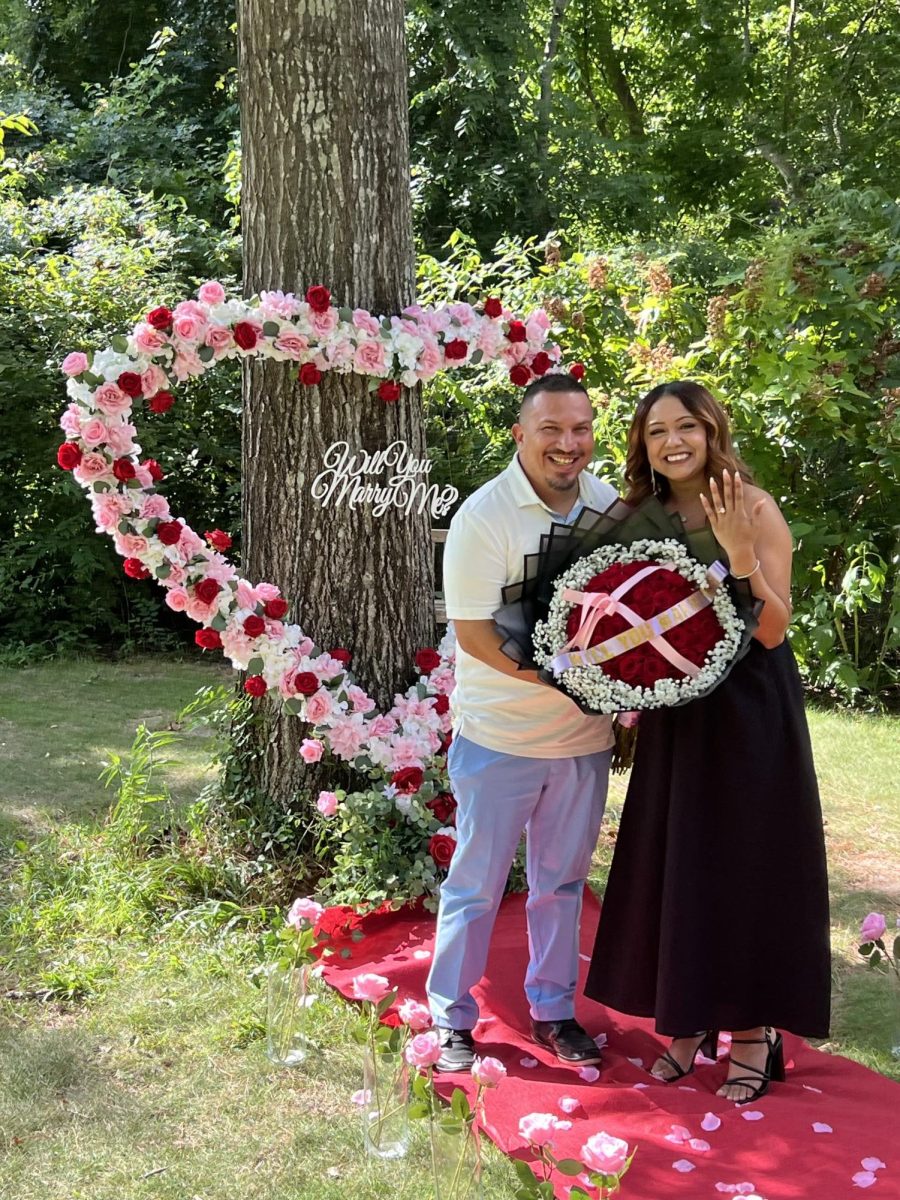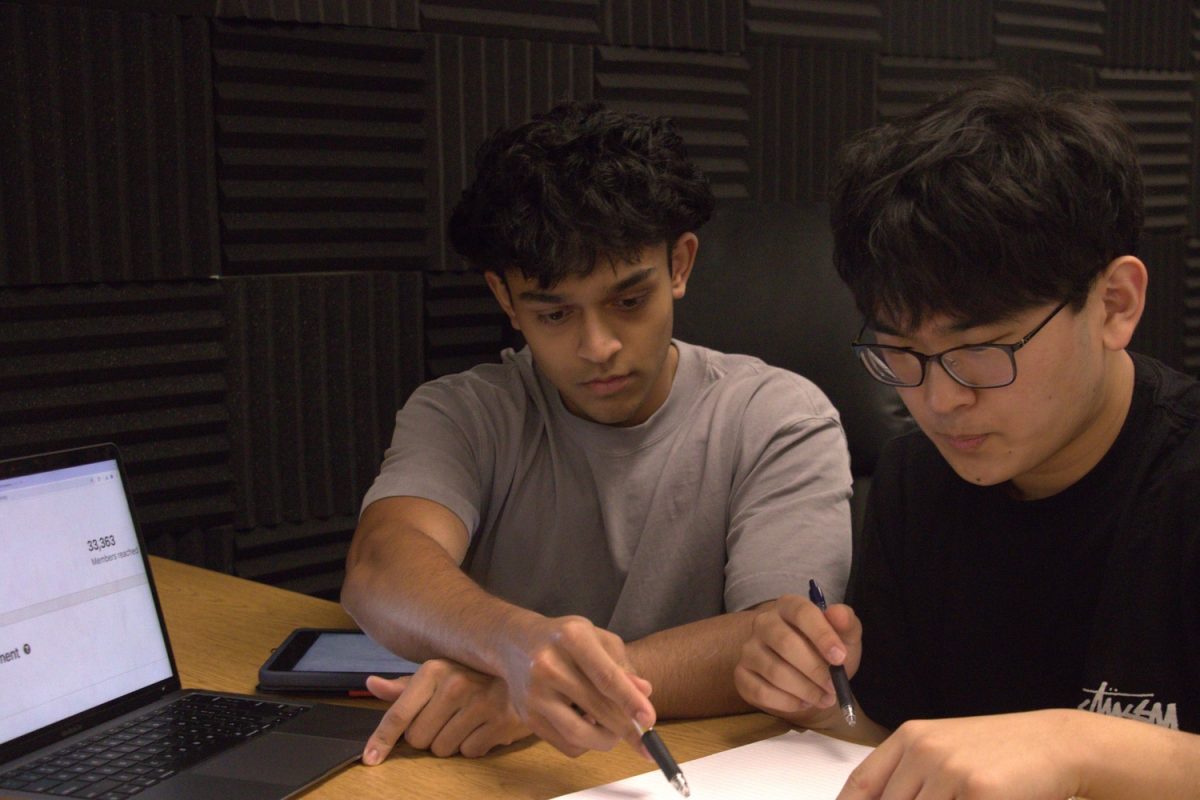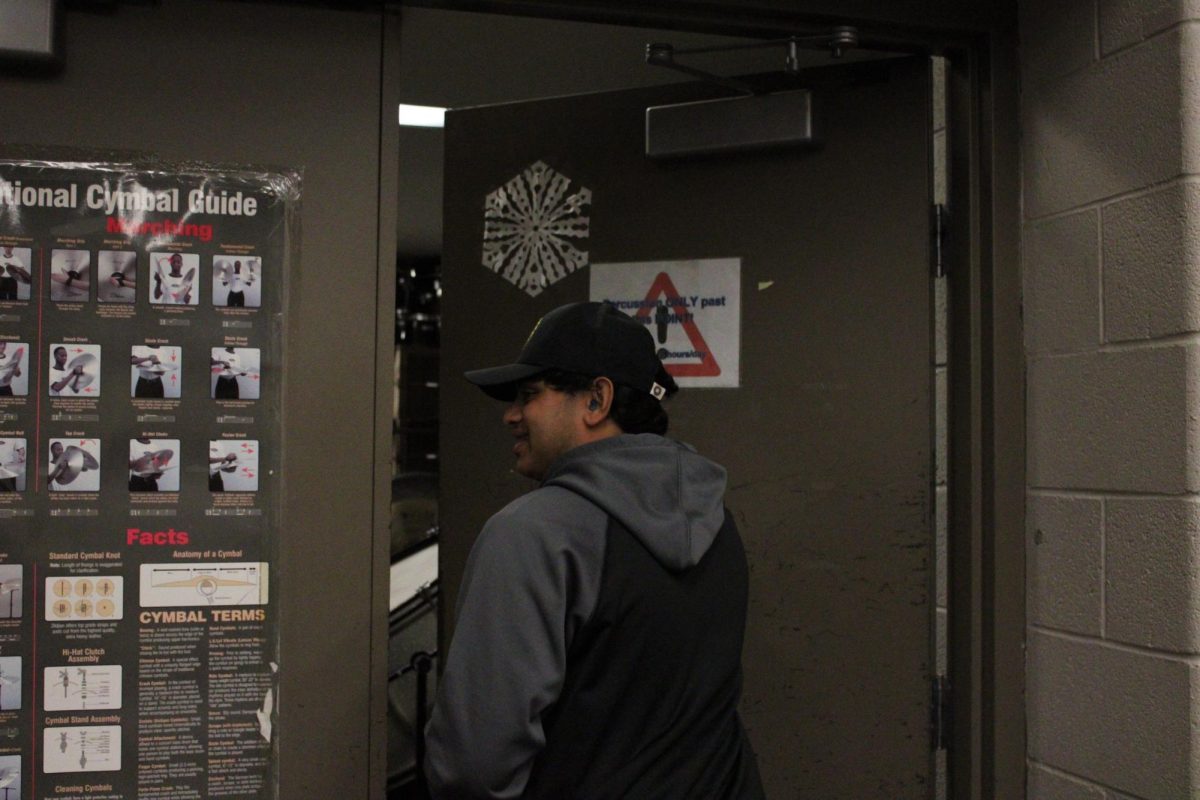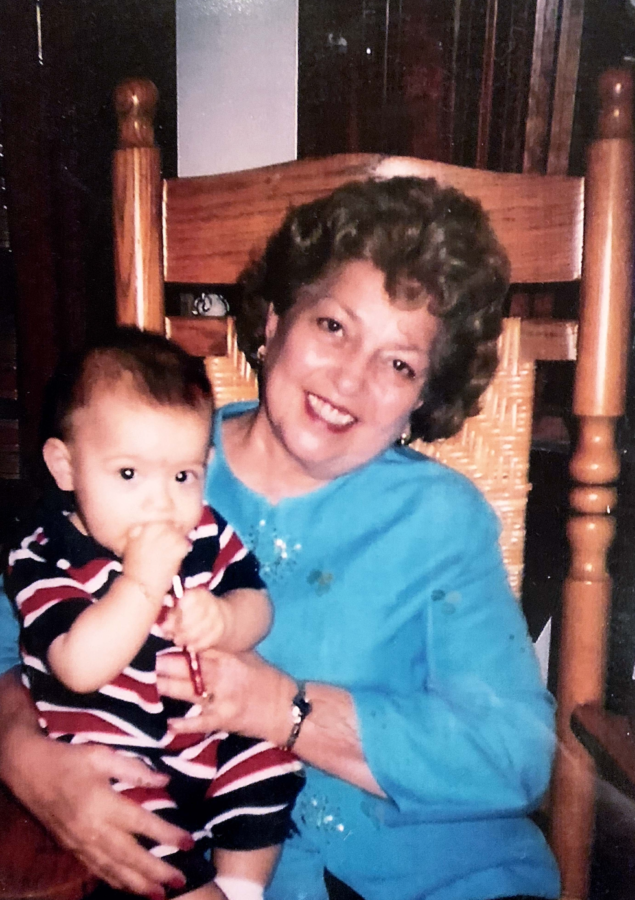Downtown cultural center pays tribute to student’s family
Nic Lee’s grandmother, Emma S. Barrientos, was a well-known Mexican American activist
Photo courtesy of Alicia Barrientos-Lee
THROWBACK: Current junior Nic Lee poses with his grandmother, Emma Serrato Barrientos. In 2011, the downtown Austin Mexican American Cultural Center (MACC) was named after Barrientos for her efforts as a cultural activist and Texas state representative.
January 4, 2022
It’s 2009. Nic Lee’s hands are linked with his mom’s as they look at an old photo on the wall. An upbeat song is playing in the background as the rest of their family members dance. Lee, a current junior, and his family are honoring his grandmother, Emma Serrato Barrientos, following the anniversary of her passing.
Two years later, Austin’s downtown Mexican American Cultural Center (MACC) was renamed after Lee’s grandmother, who was a well-known cultural activist and Texas state representative.
“My grandma was always an advocate for the Mexican American culture being expressed,” Lee said. “I know that she was always helping my grandpa with things and she wanted to have a proper representation of Mexicans in Texas.”
Barrientos grew up in a modest neighborhood in Galveston, Texas with her four siblings and was introduced to multiple cultures at an early age.
“I can still remember the three-bedroom house she grew up in and the little corner store she visited as a child,” Lee’s mom Alicia Barrientos-Lee said. “With each visit to Galveston, my mom shared many stories of her youth. She was introduced to multicultural foods, music, and dance because of her neighbors and neighborhood. However, her exposure to the Mexican cultural arts was incomplete until she left Galveston.”
After Barrientos’ high school graduation, she and her new husband Gonzalo moved to Austin to start a family and attend college. Gonzalo went to the University of Texas.
“My mother was not only passionate about the arts, but also an activist, advocate, and leader of her community,” Barrientos-Lee said. “She was my father’s biggest support and hardest worker.”
Barrientos and her husband quickly became involved in Civil Rights issues with the growing racial discrimination in the late 1960s. They collaborated with many Mexican-American workers who sought for improvements in their industries.
“When she moved to Austin, she had a vision,” Barrientos-Lee said. “She wanted everyone to be able to better understand our culture, history, and traditions.”
Barrientos’ passion was to educate and share with her community about Mexican American culture.
“Acknowledging Mexican American history allows us to embrace other customs and expand our knowledge of Mexican American culture,” senior multicultural acceptance club president Trinity Thompson said. “This brings our community together because so many people in the Bowie and Austin communities come from Mexican or Hispanic backgrounds.”
Barrientos always loved museums and the arts, and became engrossed in the communities of local creators. Barrientos and other MACC supporters joined the non-profit Center for Mexican American Cultural Arts and contracted the city for operations.
“The City of Austin Bond proposal for a Mexican Cultural Center failed the first time in 1992, but passed in 1998,” Barrientos-Lee said.
Combining her love for art and her culture, Barrientos used her voice to advocate for the Mexican American Cultural Center in Austin.
“It’s important for the Bowie community to know that [the MACC] is a hidden gem,” Barrientos-Lee said. “There is something for all ages, children, parents, and even events for the grandparents.”
After years of effort organizing committees, attending meetings with organizations, and later becoming the first Mexican American state representative, Barrientos created a name for herself around Texas.
“I think my grandma left a good legacy of representing the Mexican culture and having to express it in Texas,” Lee said. “It’s important for Bowie and the community to know [about Mexican American culture] because you don’t want to know nothing about other people and other religions in the world out there.”
Several years later, the opportunity to rename the Mexican American Cultural Center was proposed. Barrientos-Lee knew how hard-working and dedicated her mother was and felt it was only right to have her mother’s pride and joy be named after her.
“As the driving force behind the creation of a cultural center in Austin, she never gave up,” Barrientos-Lee said. “She met with several organizations of different ethnic backgrounds and numerous elected officials for their support, not to mention the countless hours of research.”
The Barrientos family all came together and contributed to the renaming of the MACC.
“When the discussion to rename the Mexican American Cultural Center arose, our entire family was involved,” Barrientos-Lee said. “We sat in meetings, had discussions with community leaders, got petitions signed, went before the Austin City Council, and supported the center in any way we could. I personally curated an exhibit which shared the story of my mother, who she was, and her life.”
In the end, the families’ contributions were worth it. The Mexican American Cultural Center was named in honor of their family member in 2011.
“It honestly seems amazing to be related to someone who left such a impact on Mexican communities and influenced change,” Thompson said.
Even after Barrientos’ passing, her legacy continues to go on both within her family and at the center.
“Every year I go over to the Mexican American Cultural center and make a mural for my grandma,” Lee said. “On her birthday we always go to the center, pray, and look around.”
Barrientos’ actions and words have left a impact on the Mexican American community in Austin and beyond. According to Barrientos-Lee, her ideas and beliefs continue to inspire others.
“Her friends and family sometimes referred to her as a gentle sledgehammer,” Barrientos-Lee said. “Her words and approach were always delicate and gentle but the results were always powerful.”
This story was originally published on The Dispatch on December 24, 2021.




































